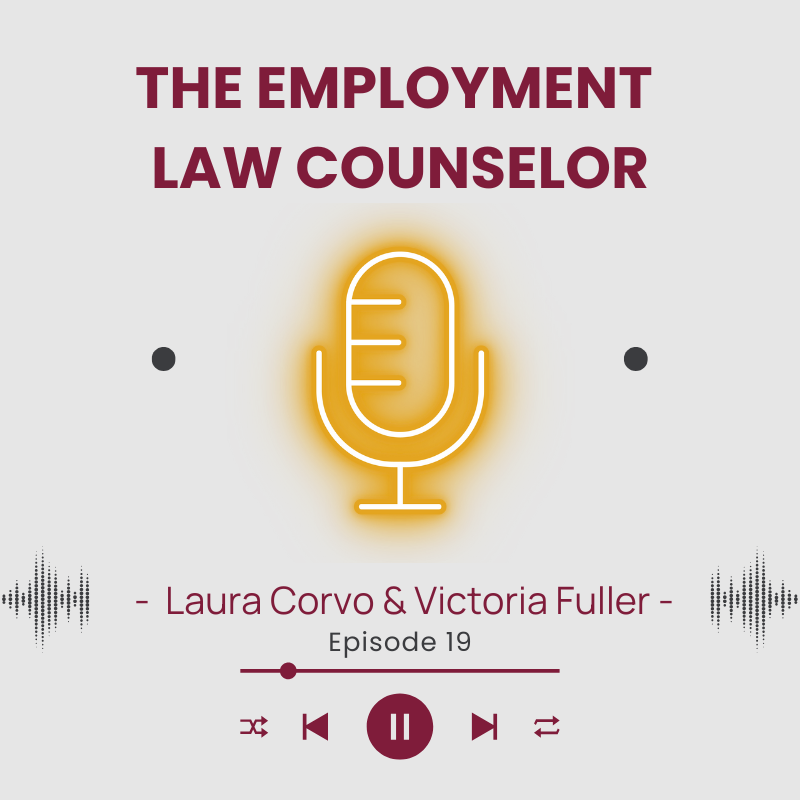June 28, 2021
COVID-19 and Disability Discrimination Lawsuits Are Producing Professional Liability Claims
 Tina Fletcher is the President of Ullico Casualty Group, LLC. Ms. Fletcher oversees all daily activities of Ullico’s property and casualty department, which includes supervising teams of underwriting, claims, and marketing professionals. She also manages Ullico Casualty Group’s underwriting system and composes policy language to keep coverage up to date to meet the needs of the multiemployer and public plans. She is a frequent speaker on Professional Liability insurance for unions, multiemployer funds, and joint apprenticeship training committees. She serves on the board of trustees of the Ullico Inc. 401(k) Plan and on the committee of the Ullico Inc. Health and Welfare Plan.
Tina Fletcher is the President of Ullico Casualty Group, LLC. Ms. Fletcher oversees all daily activities of Ullico’s property and casualty department, which includes supervising teams of underwriting, claims, and marketing professionals. She also manages Ullico Casualty Group’s underwriting system and composes policy language to keep coverage up to date to meet the needs of the multiemployer and public plans. She is a frequent speaker on Professional Liability insurance for unions, multiemployer funds, and joint apprenticeship training committees. She serves on the board of trustees of the Ullico Inc. 401(k) Plan and on the committee of the Ullico Inc. Health and Welfare Plan.
Right now, our clients are grappling with when and how to safely resume normal day-to-day activities after more than a year of restrictions due to COVID-19. They are making policies about social distancing, about masking, about whether to require employees to get vaccinations, and other decisions related to workplace conditions.
However, Equal Employment Opportunity Commission regulations and the Americans With Disabilities Act (ADA) grant employees certain rights that employers must consider when crafting and enforcing their workplace safety policies. Otherwise, they leave themselves open to disability discrimination lawsuits.
At Ullico, we underwrite professional liability insurance for union leaders, and we’ve recently noticed an uptick in professional liability claims that are directly related to disability discrimination lawsuits. As a group, union leaders face unique risks, but leaders in virtually any market are potentially liable if they terminate workers in violation of applicable laws and regulations.
The Risk in Failing to Provide Work-Related Accommodations
It’s worth reading the EEOC resource What You Should Know About COVID-19 and the ADA, the Rehabilitation Act, and Other EEO Laws for a basic orientation to the issues you might see come up in disability discrimination cases.
One of the basic issues is whether an employer fails to provide work-related accommodations. For example, an employee cannot be terminated just for refusing to get a vaccine. According to the guidance, if a safety-based qualification standard, such as a vaccination requirement, screens out or tends to screen out an individual with a disability, the employer must show that an unvaccinated employee would pose a direct threat due to a significant risk of substantial harm to the health or safety of the individual or others that cannot be eliminated or reduced by reasonable accommodation. In other words, if an employee cannot get the vaccine for some reason, employers are obligated to conduct an individual assessment to determine if the employee poses a direct threat. And even if that assessment shows there is a direct threat, the employer cannot exclude the employee from the workplace unless there is no way to provide a reasonable accommodation (absent undue hardship) that would eliminate or reduce this risk so the unvaccinated employee does not pose a direct threat.
Paths to a Disability Discrimination Lawsuit
To give a sense of how disability discrimination lawsuits might arise, here are some examples we’ve seen recently.
- A local union member and former employee of a large distribution company/manufacturer claims he was unable to work due to physical and behavioral health conditions that rendered him immune-compromised and susceptible to COVID-19 infection. Upon being terminated, the former employee alleges that his former employer violated the unions collective bargaining agreement by refusing to make work-related accommodations for him. He also alleges that the local union steward breached his duty of fair representation by doing a poor job at the grievance meeting.
- An employee called out sick a day after teaching a classroom of apprentices. The employee was under a doctor’s care and was told to rest for a week based on his symptoms. His manager told him to self-quarantine for 14 days and to get tested for COVID-19, or he would not get paid… Because he had not experienced any COVID-19-related symptoms, he objected to his managers request but ultimately got tested. The instructor subsequently sued the employer for disability discrimination, alleging that a co-worker who had been exposed to COVID-19 received different treatment, that he was not required to get a COVID-19 test, received full pay, among other allegations. .
- An employee called out sick a day after teaching a classroom of apprentices. The employee was under a doctor’s care and was told to rest for a week based on his symptoms. His manager told him to self-quarantine for 14 days and to get tested for COVID-19, or he would not get paid. Because he had not experienced any COVID-19-related symptoms, he objected to his manager’s request but ultimately got tested – the test result was negative for COVID-19. The employee’s manager informed his co-workers and students (and their employers) that they may have been exposed to COVID-19 through physical contact with the employee. The instructor subsequently sued the employer for disability discrimination alleging, among other things, that a co-worker who had been exposed to COVID-19 received different treatment than he. Specifically, the co-worker was not required to get a COVID-19 test, received full pay, and her name was kept confidential.
Because the pandemic is still evolving and COVID-related claims are still open, we expect further guidance and investigations from the EEOC. D&O insurance professionals should pay attention to how regulatory bodies handle disability discrimination to best protect insureds in a developing claims landscape.
Risk Management Tips
Employers can head off potential lawsuits and protect themselves from personal liability by engaging in considered risk management. Here are a few simple yet effective tips that professional liability underwriters should encourage their clients to follow:
- Seek counsel. Employers should not try to guess what is permissible or enforceable under the law. They should seek competent legal advice before insisting employees be tested for the virus or get the vaccine.
- Keep sensitive information private. Employers should have controls in place to protect employees names or medical information, or other personal information on communications about COVID in the workplace.
- Take a good-faith approach to accommodations. Employers should be as flexible as possible in granting requests for accommodations, especially requests from employees who ask to continue to work from home due to conditions that puts them at an increased risk for contracting COVID-19.
- Follow the guidelines. Employers should adhere strictly to CDC and EEOC guidelines concerning COVID-related protocols.
- Take a coordinated approach to grievances. Unions specifically should consider taking a coordinated, unified approach in handling COVID-related DFR grievances/arbitrations. They should consider hiring an outside law firm or designating experienced and trained staff members to handle COVID-related employment disputes concerning their members. They should consistently file grievances and pursue arbitration for all COVID-related cases; they’ll have a stronger legal defense against allegations of discrimination if they treat all claims the same.
- D&O Coverage. Policyholders should work with their insurance provider to include or adjust Directors and Officers policies to ensure they have the proper coverage and that no exclusions apply to claims arising out of COVID-19 or other pandemics.
News Type
PLUS Blog
Business Line
Employment Practices Liability (EPL)
Topic
Professional Liability (PL) Insurance
Contribute to
PLUS Blog
Contribute your thoughts to the PLUS Membership consisting of 45,000+ Professional Liability Practitioners.
Related Podcasts

The Employment Law Counselor Episode 19
Reductions in Risk for Reductions in Force In this episode of The…
Related Articles

Navigating EPL Trends Across North America: Key Risks and Insights for 2025 Webinar Recap
Employment Practices Liability (EPL) risks are becoming increasingly complex as workplace norms…

Mitigating the Risks of Reductions in Force: Lessons from The Employment Law Counselor
In the latest episode of The Employment Law Counselor, hosts Victoria Fuller…

Employment Discrimination and Retaliation – Best Practices to Avoid Headaches
There is little doubt that an employment-discrimination lawsuit is an unsettling experience…
